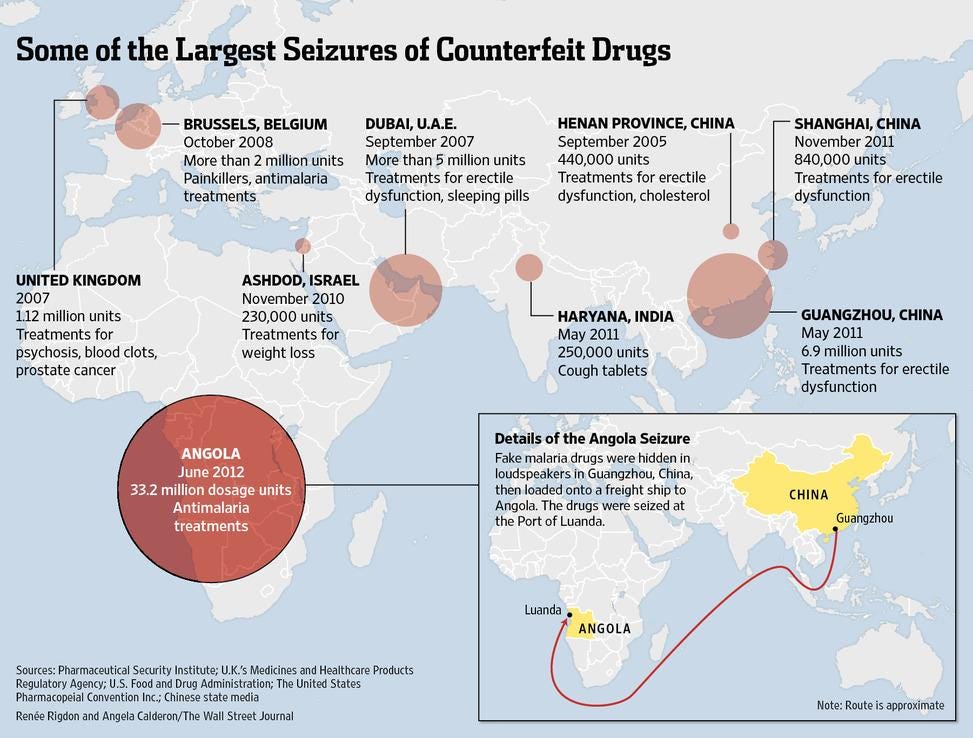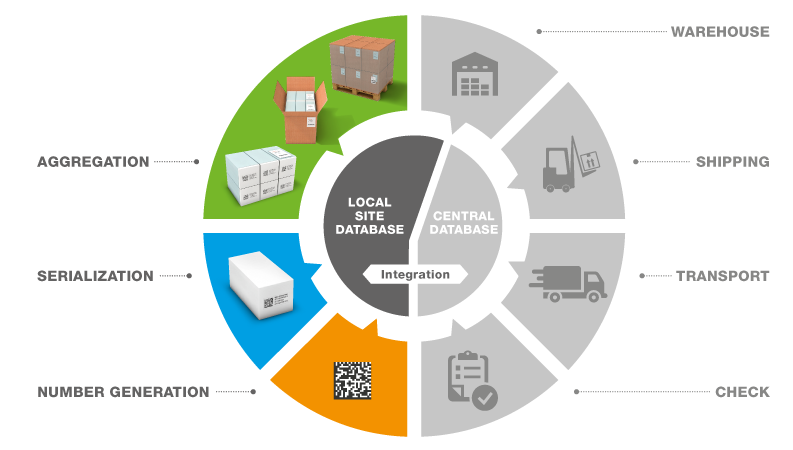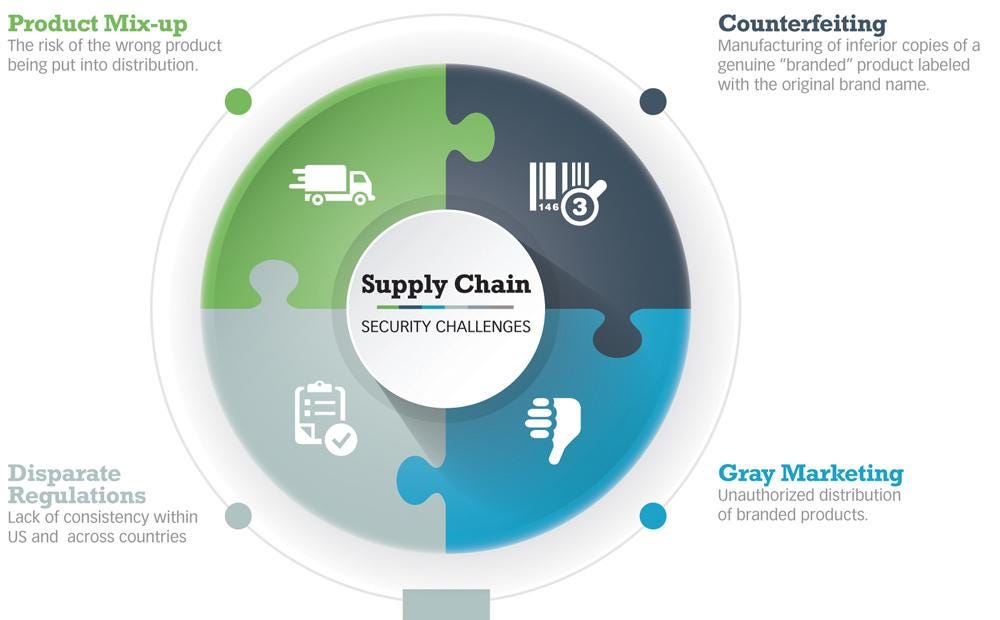Fake Drugs: Real Problem (FarmaTrust ICO live now!)
The pharmaceutical industry is critical for preserving life and health in modern society. Life as we know it could not exist if these companies weren’t producing, packaging, and distributing lifesaving and life improving medicines on a near constant basis. It makes sense then, that the pharma industry is one of the most profitable in the world. What does not make sense, is why such a large number of the drugs and medicines being sold and consumed are counterfeit.
Before you can understand the magnitude of this issue plaguing the global supply chain, it’s important to understand what a counterfeit drug even is. Counterfeit drugs are drugs that contain none or very small amounts of the active ingredient it is supposed to contain. They may contain a completely different medication, no medication at all, or may not be able to be absorbed by the body. Worse still, there are increasing numbers of cases where toxic and harmful fillers and substitutes are being used to cut corners. To be clear, this is not the result of defects, but rather the result of malicious manufacturers deliberately skirting regulations and operating outside the law in order to increase their profits.
ICO live now!
Register with this link to get 20% more tokens
The Scope of the Problem
To give you an idea of the scope of the problem, the World Health Organization has estimated that the value of the global counterfeit drug market is over $200 Billion annually. Shockingly, up to 30% of all medicines sold in developing markets are said to be fake: everything from aspirin to asthma medication to life-saving HIV, cancer, and anti malarial drugs. In Africa, 30% of drugs are fake or substandard and in Southeast Asia the number is closer to 40%. It’s been estimated that these fraudulent products account for up to a horrifying 1 Million deaths every year. There is no real way of knowing, however, because individuals and even authorities usually don’t know that their drugs are fake until after serious illness or death.
Counterfeit drugs have been detected in every and any setting, from hospitals to pharmacies to distributors and from impoverished regions to technologically advanced nations. Not only do counterfeit drugs cause illness and death, but they are also fueling anti microbial resistance across the globe. Between 2009 and 2011 there were 1510 incidents of counterfeit drugs reported within controlled supply chains in 69 different countries. In 2012, the FDA discovered counterfeit Avastin, an extremely popular cancer drug and top 5 selling drug of any kind in the US drug supply chain. Due to lack of accurate records, this resulted in only 12 prosecutions and all but one escaping jailtime. The FDA had to settle for sending out notices to thousands of locations to notify them they may been effected, because there was no universal database or record to refer back to.

The situation in developing countries is particularly dire. In countries disproportionately affected by HIV and malaria, it seems the counterfeit drug problem is even worse and even harder to monitor. According to the World Health Organization, a mind boggling 64% of the antimalarial drugs imported to Nigeria are downright fake. That means more than half of the people who think they are being protected against malaria are taking ineffective, dangerous, and even potentially toxic “medicines.” As it stands, there is no one-size-fits all procedures for tracking usage and counterfeit drug statistics or reliably authenticating packets of drugs. This means it is really impossible to know just how many people are being affected and also to know which manufacturers and distributors to hold accountable.
Solutions and Regulations
Currently, the solutions being used to tackle this problem rely on better packaging and increased enforcement of the laws and regulations in place. Realistically, that’s not going to cut it. One can only be so descriptive when explaining the characteristics of the enclosed drugs on the outside of the package. What’s worse is the complete lack of visibility and therefor accountability in the supply chain. If a manufacturer sends drugs to a distributor, in many places that is where the manufacturers data stream dries up. That distributor might turn around and sell those drugs to ten different parties or even introduce counterfeit drugs, leaving you with no downstream information. Additionally, in developing countries many of their processes are being record on outdated technology or even by hand, which makes criminal activity easy and auditing next to impossible.

For companies that manufacture, sell, or dispense pharmaceuticals in the United States and the EU, there are impending legislations to bolster track-and-trace regulations and serialize the entire process. These laws will go into effect in 2018 in the US and 2019 in the UK, and many question the feasibility of those dates. The new regulations will include, among other provisions, requirements for product identification, tracing, and verification, detection and response, and notification systems that will quickly and accurately correct an issue. These requirements can only be met with a radically new approach to the global pharmaceutical supply chain.

With these increasing measures being taken in developed nations, it becomes that much more important to advocate for and implement the same types of solutions in developing countries. We must be sure to not simply corral the illegal drug trade into less developed regions by only focusing on the developed ones. This potentiality would prove disastrous and so strongly reinforces the need for a universal system that tackles the global supply chain as a whole. That will be the only way to improve the pharmaceutical climate in places like Southeast Asia and Subharan Africa, but also for countries like the US and UK, as we are all part of a global supply chain of raw materials, services, and products.
The solution for this problem will have to be global yet customizable, transparent yet secure, and flexible enough to work across any platform. With its universal compatibility, auditability, and game changing efficiency, Blockchain is uniquely capable and perfectly suited to tackle the global pharmaceutical supply chain. To learn about our unique proposition, you can visit FarmaTrust.com to review our research on the counterfeit drug epidemic and our plan for combatting it using Blockchain and AI.
